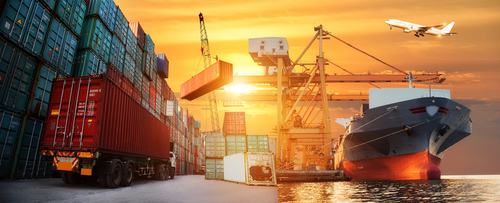
In a joint statement, House chairmen and U.S. Reps. Mark Green, MD (R-NTN), Carlos Gimenez (R-FL), August Pfluger (R-TX), and Mike Gallagher (R-WI) praised the recent White House decision to invest in the domestic manufacturing of port cranes and maritime security.
Although more often locking horns with the Biden administration, the Republicans labeled the efforts the right move to combat China. Along the way, they called out the Chinese Communist Party (CCP) and the Chinese state-owned company ZPMC in particular, for its manufacturing of the majority of ship-to-shore cranes at U.S. ports. They also noted that the cranes’ operational components are typically manufactured by the Swiss firm ABB, a close partner of ZPMC and the U.S. government.
Republican lawmakers have accused ABB in particular of failing to cooperate in good faith with committees and lacking urgent response to calls for increased security. This, they added, further emphasized a need to increase domestic production of critical components.
“The United States must not give the CCP another way to infiltrate our critical infrastructure, conduct surveillance and espionage, steal intellectual property, and potentially throttle our port activity altogether,” the lawmakers wrote. “The threat is real—we now know Chinese-affiliated hackers, Volt Typhoon, maintained access to our critical infrastructure, including the maritime sector, for five years before discovery.”
The words followed a long investigation by several House committees, including the House Committee on Homeland Security, Subcommittee on Transportation and Maritime Security, Subcommittee on Counterterrorism, Law Enforcement, and Intelligence, and the Select Committee on the Chinese Communist Party.
Last week, the White House announced that President Joe Biden would sign an executive order to boost the Department of Homeland Security’s authority over maritime cyber threats, giving the Coast Guard in particular new abilities to respond to malicious cyber activity and control the movement of vessels presenting a known or suspected cyber threat. On top of this, the Coast Guard will issue a maritime security directive on cyber risk management actions for ship-to-shore cranes manufactured in China and used at U.S. commercial strategic ports.
Already, the Coast Guard had issued a notice of proposed rulemaking on cybersecurity in the marine transportation system, laying out ways to strengthen digital MTS control systems and networks through the establishment of minimum cybersecurity requirements.
Along with the mandates, the administration announced that it would rebuild the U.S. industrial capacity so as to produce port cranes with trusted partners, rather than China. It will invest more than $20 billion to this end for U.S. port infrastructure over the next five years. PACECO Corp., a U.S.-based subsidiary of Mitsui E&S Co. Ltd. of Japan, will reportedly onshore U.S. manufacturing capacity for its crane production as a result.
“This announcement does not end the threat, but it is a meaningful step to counter it,” the lawmakers wrote after that announcement. “The follow-through will be essential. We will continue conducting a rigorous investigation into the threats posed by the CCP’s access to our ports. Our Committees will continue urging the Biden administration to strengthen the resilience of our critical infrastructure and to resolve vulnerabilities in our supply chains.”
As a result, the House Homeland Security Subcommittee on Transportation and Maritime Security will also hold a hearing on Feb. 29, 2024 at 10 a.m. to further discuss the perceived Chinese threat.




